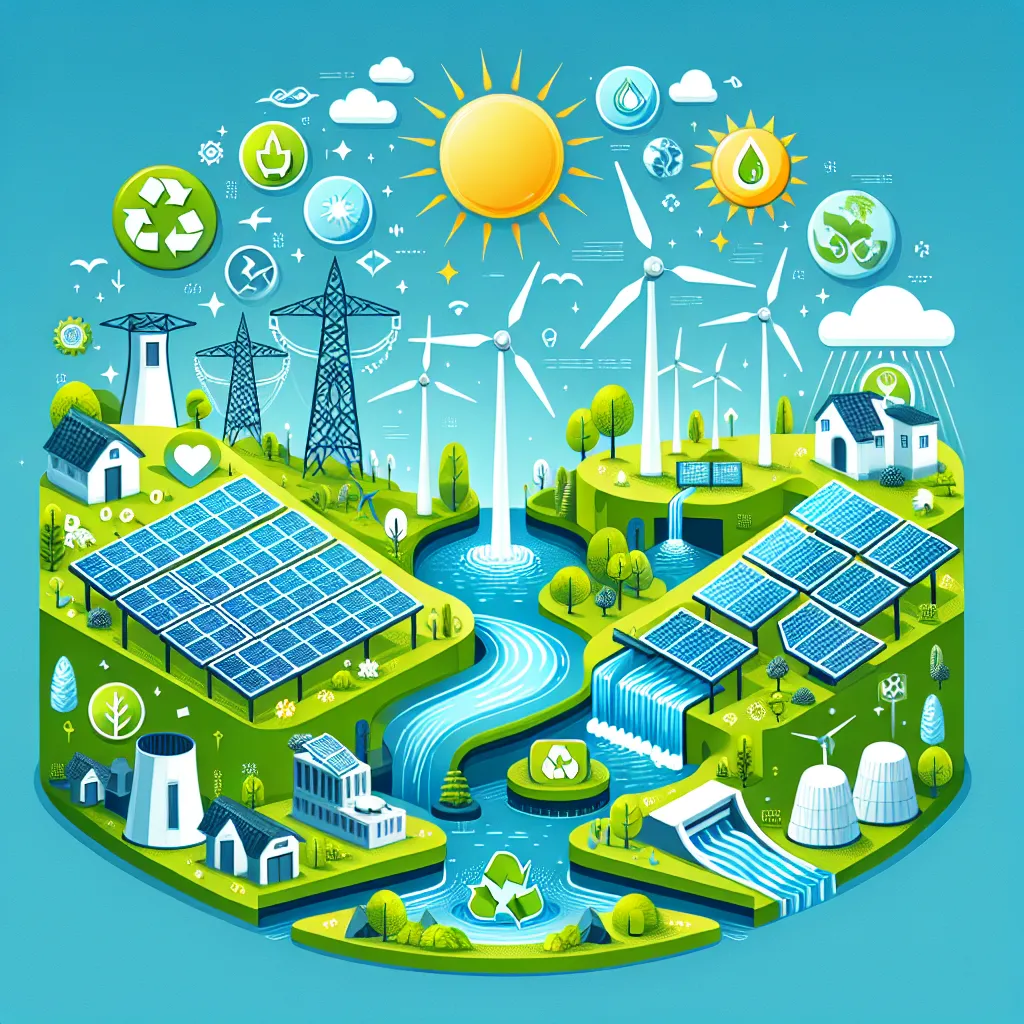As an IELTS Writing Task 2 expert, I’ve noticed that topics related to renewable energy and environmental issues have become increasingly prevalent in recent exams. The subject of “benefits of renewable energy” is particularly relevant, given its global significance and potential to appear in future tests. Let’s explore this topic in depth, focusing on a sample question that closely mirrors those seen in actual IELTS exams.
Analyzing the Question
Let’s consider the following IELTS Writing Task 2 question:
Some people believe that the development of renewable energy sources is crucial for addressing climate change, while others argue that it is too expensive and impractical. Discuss both views and give your own opinion.
This question reflects the ongoing debate about renewable energy, touching on its benefits and potential drawbacks. It’s a balanced question that requires candidates to consider multiple perspectives before presenting their own viewpoint.
Sample Essay
Here’s a model answer that addresses the question comprehensively:
In recent years, the debate surrounding renewable energy has intensified, with proponents highlighting its environmental benefits and critics focusing on economic concerns. This essay will examine both perspectives before offering a personal stance on this critical issue.
Those in favor of developing renewable energy sources argue that it is essential for combating climate change. Solar, wind, and hydroelectric power produce minimal greenhouse gas emissions, unlike fossil fuels which contribute significantly to global warming. Moreover, renewable energy sources are inexhaustible, ensuring a sustainable energy supply for future generations. Countries investing in renewable technologies also benefit from improved energy security and reduced dependence on fossil fuel imports.
On the other hand, critics contend that renewable energy development is prohibitively expensive and impractical on a large scale. The initial costs of installing solar panels or wind turbines can be substantial, often requiring government subsidies to be economically viable. Additionally, some argue that renewable energy sources are unreliable, as they depend on weather conditions that can be unpredictable. There are also concerns about the environmental impact of manufacturing renewable energy equipment and the land use required for large-scale installations.
In my opinion, while the challenges associated with renewable energy are valid, they are outweighed by the long-term benefits and necessity of transitioning to cleaner energy sources. The costs of renewable technologies have been decreasing rapidly, making them increasingly competitive with fossil fuels. Furthermore, the economic costs of climate change – including more frequent natural disasters and rising sea levels – far exceed the investments required for renewable energy development. As for reliability, advances in energy storage technologies and smart grid systems are addressing the intermittency issues associated with solar and wind power.
In conclusion, despite the initial challenges, the development of renewable energy sources is crucial for addressing climate change and ensuring a sustainable future. Governments and industries should prioritize investment in renewable technologies, recognizing that the long-term benefits far outweigh the short-term costs.
(Word count: 309)

Key Writing Tips
When addressing this topic in IELTS Writing Task 2, consider the following:
- Structure: Use a clear four-paragraph structure – introduction, two body paragraphs (one for each viewpoint), and conclusion.
- Balance: Ensure you discuss both perspectives equally before giving your opinion.
- Specific examples: Include concrete examples of renewable energy sources and their benefits/drawbacks.
- Cohesion: Use linking words to connect ideas smoothly (e.g., “Moreover”, “On the other hand”, “Furthermore”).
- Vocabulary: Employ a range of topic-specific vocabulary related to energy and the environment.
Essential Vocabulary
Here are some key terms to remember when writing about renewable energy:
- Renewable energy (noun) /rɪˈnjuːəbəl ˈenədʒi/: Energy from a source that is not depleted when used.
- Sustainable (adjective) /səˈsteɪnəbəl/: Able to be maintained at a certain rate or level.
- Fossil fuels (noun) /ˈfɒsəl fjuːəlz/: Fuels formed from the remains of living organisms.
- Greenhouse gas emissions (noun) /ˈɡriːnhaʊs ɡæs ɪˈmɪʃənz/: Gases that contribute to the greenhouse effect.
- Energy security (noun) /ˈenədʒi sɪˈkjʊərəti/: The uninterrupted availability of energy sources at an affordable price.
- Intermittency (noun) /ˌɪntəˈmɪtənsi/: The state of occurring at irregular intervals.
- Smart grid (noun) /smɑːt ɡrɪd/: An electricity supply network that uses digital technology.
- Carbon footprint (noun) /ˈkɑːbən ˈfʊtprɪnt/: The amount of carbon dioxide released into the atmosphere as a result of activities.
Conclusion
The topic of renewable energy benefits is likely to remain relevant in future IELTS exams due to its global importance. To prepare effectively, practice writing essays on related subjects such as:
- The role of government in promoting renewable energy
- The impact of renewable energy on job markets
- Comparing different types of renewable energy sources
- The challenges of integrating renewable energy into existing power grids
By mastering this topic, you’ll be well-equipped to handle a range of environmental and energy-related questions in your IELTS Writing Task 2.
For more information on renewable energy and its benefits, you might find these resources helpful:
Remember, the key to success in IELTS Writing Task 2 is practice, so try to write essays on various aspects of renewable energy to refine your skills and expand your vocabulary.